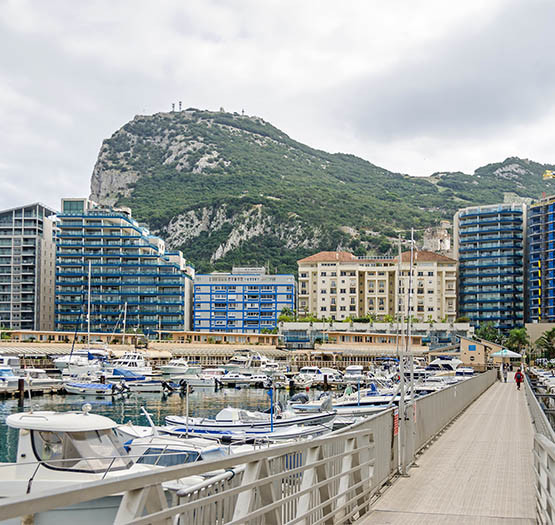INSURANCE ENTITIES
Intermediaries

The bare facts – There are currently some 36 insurance intermediaries licensed by the GFSC and operating in Gibraltar – 28 General licences and 25 Life licences. Most firms hold both licences, though 8 are Life only and 10 are General only.
So what do these firms do?
Types of Intermediary
There are fundamentally two types of intermediary operation licensed in Gibraltar:
1. Operating locally
The insurance industry in Gibraltar dates back to the turn of the century, when a number of significant insurance companies, mostly based in the UK, wrote risks in Gibraltar via agencies in Gibraltar, as part of their extended overseas operations. With a relatively small population, even today only around 30,000, most of these agencies were founded on the back of personal relationships founded with staff and executives of the insurance companies, and wrote Royal Firemarkunderstandably small portfolios of business. Even today firemarks from the era supplied by companies like the Royal, or Scottish Union can be seen on some buildings in Gibraltar.
In recent years, some of these companies withdrew as their marketing strategies found Gibraltar portfolios too small to sustain; the demand for insurance in Gibraltar nevertheless increased. The opening of the land frontier with Spain, a burgeoning private sector, and increasing personal wealth and property ownership meant that there were still considerable volumes of business to be written, and the market, whilst finite to some extent, is still growing. Car ownership is still relatively dense in Gibraltar and the last twenty years have seen the population move from a predominantly Government-housed situation, to many more house purchases, increasing the need for mortgage and other property-related insurances.
Many of the local brokers and agents still remaining have a long history, and continue to find a home for local insurance business, providing a vital local service to the Gibraltar populace.
Several local operations have also branched out into the hinterland of Spain, most dealing with expatriate English-speaking and other nationalities of client, servicing personal lines (especially motor, household and health) and life business as well as investment products. With a much larger potential client base, this has seen many local firms expand and develop. The Gibraltarian’s natural bi-linguality has been an essential asset in developing this business, given the need sometimes to help clients with officialdom in Spain.
It is from the individuals involved in running the insurance agencies of the latter part of the 20th century that the present blossoming insurance industry in Gibraltar has grown, with many of them involved in different capacities in insurance companies and firms of various kinds that operate from the Rock today.
2. Passporting into other European territories
The second type of intermediary is usually a specialist type of operation, set up with the specific intention of servicing a client base which is not locally-derived, or indeed from the neighbouring regions of Spain. Their motivation for establishing in Gibraltar is not so much driven by a historical local connection, as it is by the advantages that Gibraltar offers them in comparison with setting up in other Euro territories, for example:
- Accessible regulatory regime
- Lower cost base
- Availability of knowledgeable and educated employee base
- Easy access to EU territories, especially UK
- Favourable fiscal structures
- Ability to operate cross-border within Europe
- Developed and knowledgeable service provider infrastructure
Some of these operators are in the motor sector, relating to the influx of motor insurers that Gibraltar saw in the noughties. With the tendency of today’s motor market to maximise the “vanilla” risks, with the advent of internet based mass selling, many of the major insurers have left specialised UK brokers without capacity, which has led some to establish insurance companies in Gibraltar. Now that the concept of specialist capacity is becoming embedded, the next likely development is for brokers in UK (and other EU territories) to look at the establishment of Managing General Agents based in Gibraltar, to handle those specialised portfolios, with all the benefits of control and independence that that implies for them.
Operations of this kind, with relatively large volumes of clients, will always need to contract service and marketing facilities in their target market territory, however management and control of the intermediary and the portfolio of business will remain firmly based in Gibraltar, with the company taking advantage of Gibraltar’s European status to passport its services into its market.
Other intermediaries have been set up to handle a range of niche areas of insurance business such as medical malpractice, tenant deposit insurance, and pay-as-you-go motor insurance amongst others. All are attracted by the ease of doing business in Gibraltar and the blue chip regulatory reputation that the domicile has.
Conclusion
The intermediary market played an essential role in starting and developing Gibraltar’s insurance industry into the modern day, and now Gibraltar offers an attractive proposition to specialist intermediaries looking to establish in a business-friendly environment which still affords them easy access to their target market, and a global hub from which insurance mediation services can be offered.